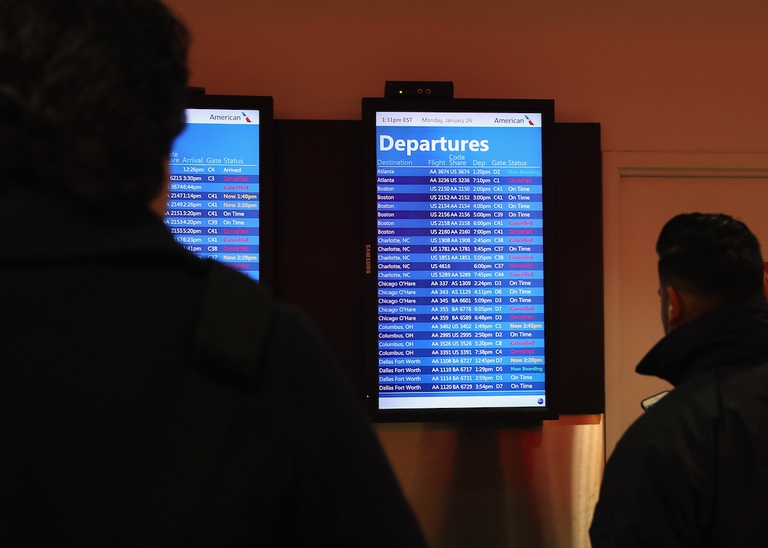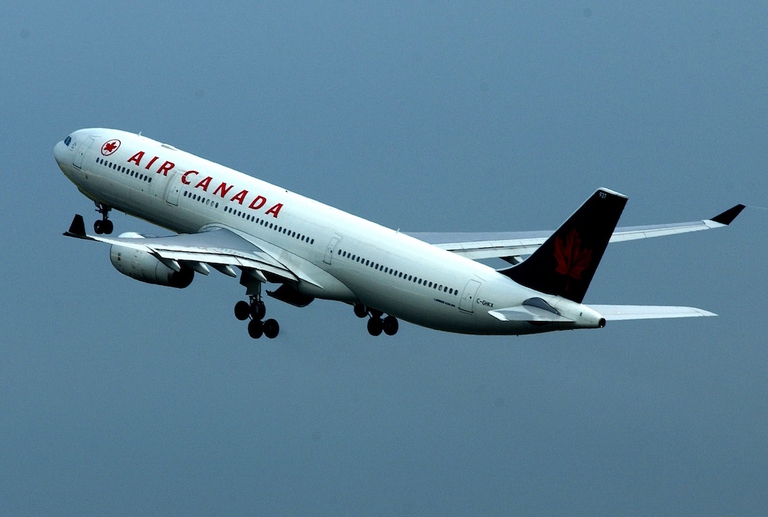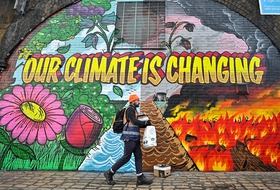
Nearly 100 people have died in the heatwave in India that has badly hit millions of people who work under the blazing sun to earn their livelihood.
By 2100, flights from London to New York, as well as any other transatlantic flight from Europe to the United States, will be more expensive, longer and more polluting than today. This is due to climate change. In particular, due to the consequences the rise in global temperatures will cause on the jet stream, according
By 2100, flights from London to New York, as well as any other transatlantic flight from Europe to the United States, will be more expensive, longer and more polluting than today. This is due to climate change. In particular, due to the consequences the rise in global temperatures will cause on the jet stream, according to a study carried out by the University of Reading and published in the scientific magazine Environmental Research Letters.
UK researchers explain that the increase in atmospheric temperature, mostly in the Arctic region, will change the Atlantic jet stream from west to east, which will significantly increase. And the time saved in eastbound flights (towards Europe) won’t be enough to compensate the delay of westbound flights.
“The bad news for passengers is that westbound flights will be battling against stronger headwinds,” said Paul Williams, an atmospheric scientist at the University of Reading. “Eastbound flights will be boosted by stronger tailwinds, but not enough to compensate for the longer westbound journeys. The net result is that round-trip journeys will significantly lengthen.”
This will have both economic and environmental consequences: “This effect will increase the fuel costs to airlines, potentially raising ticket prices,” added Williams. “And it will worsen the environmental impacts of aviation”.
The study points out that increased round-trip journey time will lead to 2,000 extra hours of planes in the air every year, with $22 million extra in fuel costs and 70 million kg of CO2. Extra CO2 is the equivalent of the annual emissions of 7,000 households.
In the meanwhile, the International Civil Aviation Organization of the United Nations achieved a deal with the aviation industry after 6 months of negotiations. The deal includes the introduction of limits on airlines’ CO2 emissions. It’s the first time ever, since airplanes had not been included in any international climate change deals, such as the Paris Agreement, achieved at the end of COP21 in Paris last December.
The only problem is that the new rules would apply for all new airplanes delivered after 2028. In the meanwhile, the aviation industry will continue generating as much emissions as Germany every year. According to analysts, such figure could triple over the next decades.
Siamo anche su WhatsApp. Segui il canale ufficiale LifeGate per restare aggiornata, aggiornato sulle ultime notizie e sulle nostre attività.
![]()
Quest'opera è distribuita con Licenza Creative Commons Attribuzione - Non commerciale - Non opere derivate 4.0 Internazionale.
Nearly 100 people have died in the heatwave in India that has badly hit millions of people who work under the blazing sun to earn their livelihood.
According to data reported by C3S, 2021 was one of the hottest years on record and Europe experienced a summer of extremes.
COP26 ended on Saturday 13th November, one day later than expected. Some positives and many negatives in the Glasgow Climate Pact, weakened by India’s last-minute change.
Governments made announcements, leaders spoke, decisions were made, civil society protested. This is what happened during the first week of COP26.
Reducing emissions means protecting our health: if unmitigated, climate change will pose increasingly severe challenges to human well-being.
The Paris Climate Agreement requires us to move towards carbon neutrality, but what does reducing net greenhouse gas emissions to zero actually mean?
If we want to limit the rise of average global temperatures to 1.5 degrees, we can emit only a limited amount of CO2. This is the carbon budget.
We talk to Shaama Sandooyea, activist and marine biologist from Mauritius onboard Greenpeace’s Arctic Sunrise ship in the heart of the Indian Ocean.
In the heart of Switzerland lies the largest glacier in the Alps, the Greater Aletsch Glacier. However, climate change is threatening its very existence.









